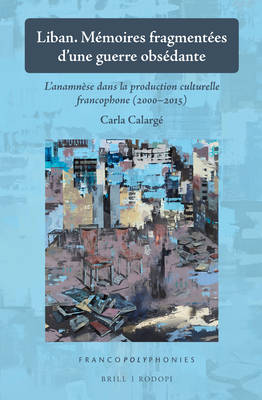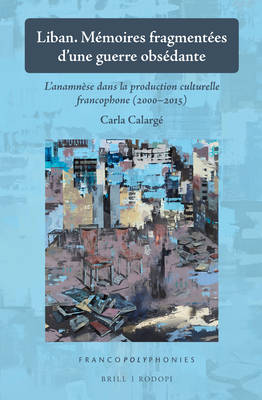
- Afhalen na 1 uur in een winkel met voorraad
- Gratis thuislevering in België vanaf € 30
- Ruim aanbod met 7 miljoen producten
- Afhalen na 1 uur in een winkel met voorraad
- Gratis thuislevering in België vanaf € 30
- Ruim aanbod met 7 miljoen producten
Zoeken
Omschrijving
Liban. Mémoires fragmentées examine l'anamnèse de la guerre civile libanaise telle qu'articulée dans la production culturelle des années 2000-2015. Calargé postule que cette production tente de combler le vide discursif crée par l'absence d'un récit officiel de l'histoire contemporaine.
Liban. Mémoires fragmentées examines how cultural production has revived the collective memory of the Lebanese (un)civil war and attempted to fill a gaping void in the national historical narrative by defying and critiquing the politics of forgetting pursued by post-war leadership.
Liban. Mémoires fragmentées examines how cultural production has revived the collective memory of the Lebanese (un)civil war and attempted to fill a gaping void in the national historical narrative by defying and critiquing the politics of forgetting pursued by post-war leadership.
Specificaties
Betrokkenen
- Auteur(s):
- Uitgeverij:
Inhoud
- Aantal bladzijden:
- 246
- Taal:
- Frans
- Reeks:
- Reeksnummer:
- nr. 22
Eigenschappen
- Productcode (EAN):
- 9789004343603
- Verschijningsdatum:
- 18/05/2017
- Uitvoering:
- Hardcover
- Formaat:
- Genaaid
- Afmetingen:
- 155 mm x 236 mm
- Gewicht:
- 498 g

Alleen bij Standaard Boekhandel
+ 438 punten op je klantenkaart van Standaard Boekhandel
Beoordelingen
We publiceren alleen reviews die voldoen aan de voorwaarden voor reviews. Bekijk onze voorwaarden voor reviews.








